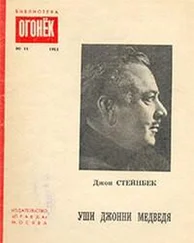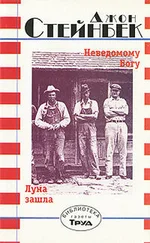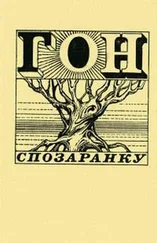Джон Стейнбек - Cup of Gold [Золотая чаша]
Здесь есть возможность читать онлайн «Джон Стейнбек - Cup of Gold [Золотая чаша]» — ознакомительный отрывок электронной книги совершенно бесплатно, а после прочтения отрывка купить полную версию. В некоторых случаях можно слушать аудио, скачать через торрент в формате fb2 и присутствует краткое содержание. Год выпуска: 1929, Жанр: Прочие приключения, на английском языке. Описание произведения, (предисловие) а так же отзывы посетителей доступны на портале библиотеки ЛибКат.
- Название:Cup of Gold [Золотая чаша]
- Автор:
- Жанр:
- Год:1929
- ISBN:нет данных
- Рейтинг книги:5 / 5. Голосов: 1
-
Избранное:Добавить в избранное
- Отзывы:
-
Ваша оценка:
- 100
- 1
- 2
- 3
- 4
- 5
Cup of Gold [Золотая чаша]: краткое содержание, описание и аннотация
Предлагаем к чтению аннотацию, описание, краткое содержание или предисловие (зависит от того, что написал сам автор книги «Cup of Gold [Золотая чаша]»). Если вы не нашли необходимую информацию о книге — напишите в комментариях, мы постараемся отыскать её.
Cup of Gold [Золотая чаша] — читать онлайн ознакомительный отрывок
Ниже представлен текст книги, разбитый по страницам. Система сохранения места последней прочитанной страницы, позволяет с удобством читать онлайн бесплатно книгу «Cup of Gold [Золотая чаша]», без необходимости каждый раз заново искать на чём Вы остановились. Поставьте закладку, и сможете в любой момент перейти на страницу, на которой закончили чтение.
Интервал:
Закладка:
"Have you considered these ancient wars?" Henry asked. "I have been reading of Alexander and Xenophon and Caesar in their wars. And the thought is on me that battle and tactics-that is, successful tactics-are nothing more than a glorified trickery. The force is necessary, and the arms, of course; but the war is really won by the man who sits back, like one cheating at cards, and confounds the enemy with his trickery. Have you considered that, sir? Any one who can guess the minds of ordinary generals, as I can guess the minds of the slaves, can win battles. Such a man would have only to shun what was expected of him. Isn't that the secret of tactics, sir?"
"I had not thought of it," said James Flower just a trifle jealously. And that awe he felt for people of ideas went out to Henry. But the planter took great comfort in telling himself that, after all, he was the teacher who had awakened these ideas.
Two years after Henry had come, the overseer was released by the years from his bondage. He found his freedom too strong a drug for the mind that had been used to outside control. That mind snapped, and fury flooded in on him, so that he went shouting along the roads, striking at every passer-by. And in the night his mania became a terrible, frantic thing. He rolled on the ground under his gallows, and bloody foam frothed from his mouth while the slaves looked on in terror. At length he arose, with ragged hair and maniac, flaming eyes. He seized a torch and rushed into the fields. And Henry Morgan shot him dead as he entered the close growing rows of cane.
"Who knows the work as well as I do, and whom can you trust more, sir?" young Henry asked the planter. "I have learned things in the books and from my watching that will make this plantation a hundred times more productive."
Thus he became much more than the overseer.
Henry removed the gallows from the square, and after that the hanging was done secretly, in the night.
This was not kindness. He knew, out of his own reasoning, that the unknown thing can never become the normal thing; that unseen punishments could be far more horrible to the remaining slaves than those seen under the light of the sun.
Henry had learned many things in dealing with the slaves. He knew that he must never let them see what he was thinking, for then, in some ineffable way, they had a hold on him which would be difficult to shake off. He must be cold and distant and insulting to those below him. With few exceptions, they would take insult as the sign of his superiority. Men always believed him what he seemed to be, and he could seem to be almost anything.
If one were brilliantly dressed, all men presumed him rich and powerful, and treated him accordingly.
When he said things as though he meant them, nearly all acted as though he meant them. And, most important of his lessons-if he were perfectly honest and gave a strict accounting in nine consecutive dealings, then the tenth time he might steal as much as he wished, and no one would dream of suspecting him, so only he had brought the nine times forcibly enough to the attention of all men.
A growing pile of golden coins in a box under his bed gave ample proof of the validity of this last lesson.
And he followed all his teachings. He never gave any man the least hold on him, nor insight into his motives and means and abilities and shortcomings. Since most men did not believe in themselves, they could not believe in one they understood to be like themselves.
These rules he gleaned gradually from his life, until he was master of the plantation, until James Flower pitifully leaned on his advice and his convictions, and until the Caribs and blacks and felon white men hated and feared him, and yet could make no dent in his being-could get no hold to hurt him.
James Flower was deliciously happy-happier than he had ever been-for this boy had lifted the hideous weight of the plantation from his shoulders. He need think no more of the matters of tilling the soil. More and more he lay drowned in his books. And, now he was coming to be an old man, he read the same books over and over again without knowing it. Often he felt a slight irritation at the careless person who had made notes in his margins and dog-eared the pages.
And Henry Morgan had got himself a great plantation and a great power. Under his captaincy the earth flowered and increased. He was making the land give four times as much as it had before. The slaves worked deliriously under the whips which followed them to the fields, but there was nothing personal in the whips. The old overseer had delighted in punishment, but Henry Morgan was not cruel. He was merciless. He merely speeded the wheels of his factory. One could not think of being kind to a sprocket or a fly-wheel, and no more could this boy think of pampering his slaves.
Henry was forcing money out of the ground, and from it was adding to his hoard in the box under his bed-a little from the season's sale of cane and a trifle in the buying of new cattle. It was not stealing, but only a kind of commission for his success. The little pile of golden coins grew and grew for the time when Henry Morgan should go a-buccaneering and take a Spanish town.
Henry had served three years, and, though he was only eighteen, he was grown and strong. His crisp black hair seemed to curl more tightly to his head, and his mouth, from dealing with the slaves, was more firm than ever. He gazed about him and knew that he should be satisfied, but his eyes had never lost the trick of looking out beyond distance and over the edge of the present. A little hectoring wish ran through his waking and dreaming like a thin red line. He must get back to the sea and ships. The sea was his mother and his mistress, and the goddess who might command and find him ready and alert for service.
Why, his very name, in the ancient Briton tongue, signified one who lived by the sea. Yes, the ships were calling to him cruelly now. His heart sailed out, away from him with every passing merchantman.
In the big house he had studied and considered what navigation there was in books, and in the plantation's little sloop he had gone cruising in the near waters. But this was the play of a child, he thought, and it was not preparing him to be an expert sailor. It was necessary for him to learn avidly, for in the near future he must go a-buccaneering and take a Spanish town. This was the silver throne of all his desire.
And so, one evening-
"There is a thing I should like to be speaking of, sir."
James Flower raised his eyes from his book and laid his head back in the chair.
"If we had a ship to carry our produce to Jamaica," Henry continued, "we should be saving a large deal in freightage. The cost of such a ship would soon enough be eaten away by the profits. Too, we might carry the produce of the other plantations at a smaller fee than the merchantmen ask."
"But where might one come on such a ship?" James Flower inquired.
"There is one in the harbor now, one of two masts and-"
"Then buy her; buy her, and see to it. You know more about these things than I do. By the way, here is an interesting conjecture on the inhabitants of the moon. 'They may be totally unlike human beings,' he read. 'Their necks could easily be-' "
"It will be seven hundred pounds, sir."
"What will be seven hundred pounds? You seem not to pay attention as you used, Henry. Do listen to this paragraph; it is both entertaining and instructive-"
Henry careened the ship, and when he had scraped and painted her, he named her Elizabeth and put to sea. He had what is known as "hands" to a horseman, a warm feeling of the personality of his boat. He must learn the rules of navigation, of course; but even before that something of the spirit of the ship crept into his soul, and part of him went back to her. It was a steadfast love, a steady understanding of the sea. By the thrill of her deck and the smooth touch of the wheel, he knew instinctively how close he could bring her into the wind. He was like a man who, laying his head on his mistress' breast, reads the flux of her passions in her breathing.
Читать дальшеИнтервал:
Закладка:
Похожие книги на «Cup of Gold [Золотая чаша]»
Представляем Вашему вниманию похожие книги на «Cup of Gold [Золотая чаша]» списком для выбора. Мы отобрали схожую по названию и смыслу литературу в надежде предоставить читателям больше вариантов отыскать новые, интересные, ещё непрочитанные произведения.
Обсуждение, отзывы о книге «Cup of Gold [Золотая чаша]» и просто собственные мнения читателей. Оставьте ваши комментарии, напишите, что Вы думаете о произведении, его смысле или главных героях. Укажите что конкретно понравилось, а что нет, и почему Вы так считаете.
![Джон Стейнбек Cup of Gold [Золотая чаша] обложка книги](/books/181372/dzhon-stejnbek-cup-of-gold-zolotaya-chasha-cover.webp)





